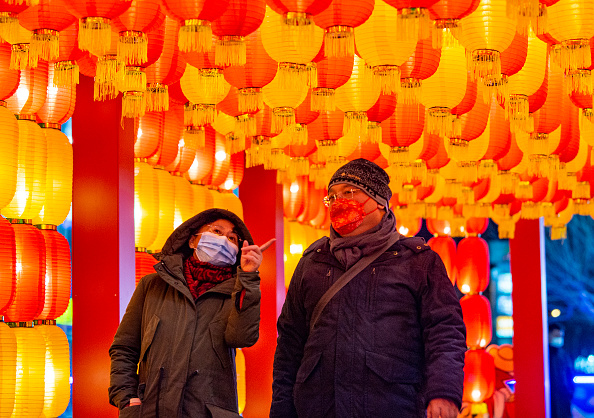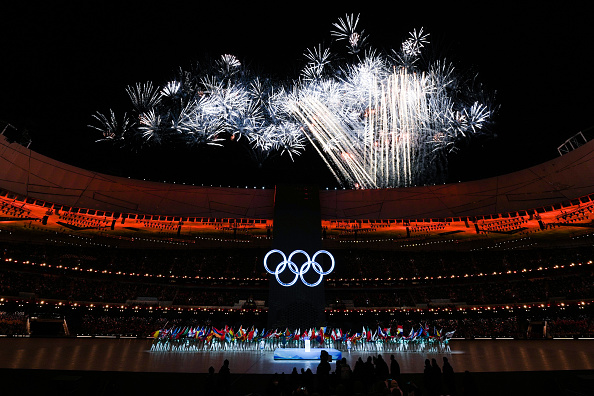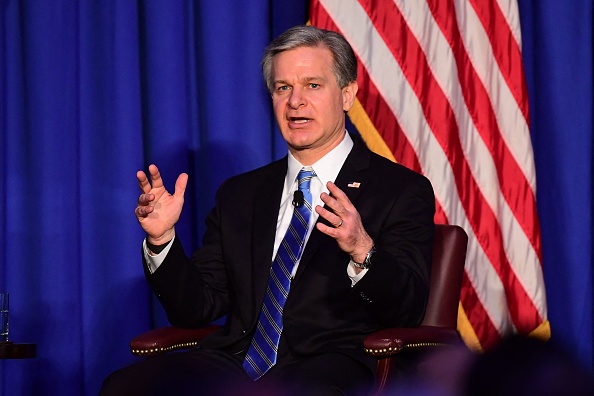
 Year of the Tiger
Year of the TigerThis week officially rang in Chinese Lunar New Year: the Year of the Tiger, while also awaiting the commencement of the 2022 Beijing Winter Olympics. China's Ambassador to the U.S., Qin Gang, delivered a speech at a reception for the new year where he emphasized the tiger's symbol of bravery, wisdom and strength in Chinese culture, and how these characteristics relate to working for growth in China-U.S. relations.
"In the coming year of the tiger, we must have the courage and vision and follow the agreement reached by the two Presidents in their virtual meeting last year, uphold the spirit of mutual respect, peaceful coexistence and win-win cooperation, take the difficulties head on, and work for the sound and stable growth of China-U.S. relations," Qin Gang said.
In China, Lunar New Year, also known as Spring Festival, is well-known to be one of the most important times of the year to spend with family. Every year, hundreds of millions of Chinese residents head back to their hometowns from other Chinese cities and abroad to celebrate the holiday with their loved ones. But for the third straight year, Covid-19 has thwarted the travel plans of millions of residents, with Chinese officials encouraging people to stay put due to recent outbreaks of the Omicron variant.
Meanwhile, thousands of locals working and volunteering at the Beijing Olympics are finding new ways to celebrate this year. With the Olympics strict Covid-19 bubble that restricts anyone at the Games from stepping outside designated Olympics spaces, local workers are sharing their Spring Festival traditions and ringing in the Year of the Tiger with the many foreign athletes, media, and Olympics personnel. Traditional Chinese New Year decor and symbols were hung on doors and walls, volunteers offered opportunities to paint calligraphy on traditional New Year couplets, miniature tiger figurines were distributed, and cultural celebrations and meals were held for athletes.
Yang Yang, the chairwoman of the Athletes' Commission of the Beijing 2022 Organizing Committee said that while it's sad many participants can't spend time with their families, they are enjoying the "dual celebration" of the Olympics and Lunar New Year. She also said this is a unique moment for China, as this is the first time in history the two events are happening at the same time.
 The Pandemic Olympics
The Pandemic OlympicsChina has officially kicked off the pandemic era's second Games, while empty stadiums, a ban on foreign visitors, and a reduced TV audience will likely reduce the attention Beijing was hoping to garner from the Games.
Chinese President Xi Jinping declared the Games open in the same Bird's Nest stadium that hosted the inaugural event of the 2008 Summer Olympics. The Games are perceived by some International China watchers as a test for Xi, who is expected to assume an unprecedented third term later this year. Addressing the International Olympic Committee in a video message on Thursday, Xi said, "The world is turning its eyes to China and China is ready."
As well as tight Covid-19 controls, the Games are fraught with political tensions over allegations of human rights abuses and boycotts, including the U.S., the UK and more than a dozen other governments. China's leaders, and state media, have dismissed the diplomatic boycott as "politicization."
Meanwhile, Russian President Vladimir Putin arrived in Beijing, bringing with him a deal to increase natural gas supplies to China amid rising tension with the West. The two also issued a call for NATO to halt further expansion, just as a buildup of Russian troops near the border with Ukraine has fueled fears of an imminent invasion and prompted warnings from NATO and Western powers that any Russian aggression would result in serious consequences.
Read more in, "The Tangled Politics of Beijing's Bird's Nest," by Phil Cunningham.
 Ongoing Tensions
Ongoing TensionsPresident Biden is planning a trip to Asia this spring, and will make several stops including in Tokyo for a summit with leaders from the "Quad" alliance, which also includes Australia, India and Japan. The planned trip will be Biden's first to the region as president, and will focus on finding common ways to address China's expanding power and influence.
The trip will likely occur in the midst of ongoing tensions between the U.S. and China. Just this week, the FBI announced it believes Chinese cyber-spying in the U.S. has become so widespread that the agency is launching an average of two counterintelligence investigations a day to counter attacks. Describing the threat as 'more brazen' than ever before, FBI Director Christopher Wray accused Beijing of stealing American ideas and innovation and launching massive hacking operations. This isn't the first time Wray has voiced these kinds of accusations against Beijing, and China has historically rebuffed the complaints. This round, Wray's comments quickly drew fire from state-run newspaper, the Global Times, but Beijing has refrained from directly hitting back thus far.
In the meantime, while Republicans and Democrats have strong divisions on various policy issues, a hard line on China increasingly draws support across party lines. Worsening tensions between China and the U.S. are increasing pressure to separate the two countries' financial markets. This doesn't necessarily mean the two powers are about to decouple their financial markets, but with recent calls in Washington for new restrictions on investments in China, the potential for disruption is increasing. Read more in, "The Decoupling of the U.S. Dollar-Yuan Relationship?," by Dan Steinbock, Founder of the Difference Group.
Prepared by China-US Focus editorial teams in Hong Kong and New York, this weekly newsletter offers you snap shots of latest trends and developments emerging from China every week, while adding a dose of historical perspective.
- 2022-01-28 Zero-Sum
- 2022-01-21 An Uncertain Future
- 2022-01-14 Digital Advances
- 2022-01-07 The Dawn of a New Political Year
- 2021-12-17 Clamp Down
- 2021-12-10 Debating Democracy
- 2021-12-03 Managing Competition
- 2021-11-19 Responsible World Leadership
- 2021-11-12 A Historic Transformation
- 2021-11-05 A Green Rivalry
- 2021-10-29 Dry Tinder
- 2021-10-22 A Diplomatic Burn
- 2021-10-15 Energy Crunch
- 2021-10-08 Stoking Tensions
- 2021-10-01 Great Power Coopetition
- 2021-09-24 Sign of Goodwill?
- 2021-09-17 State of Play
- 2021-09-10 The Last Word
